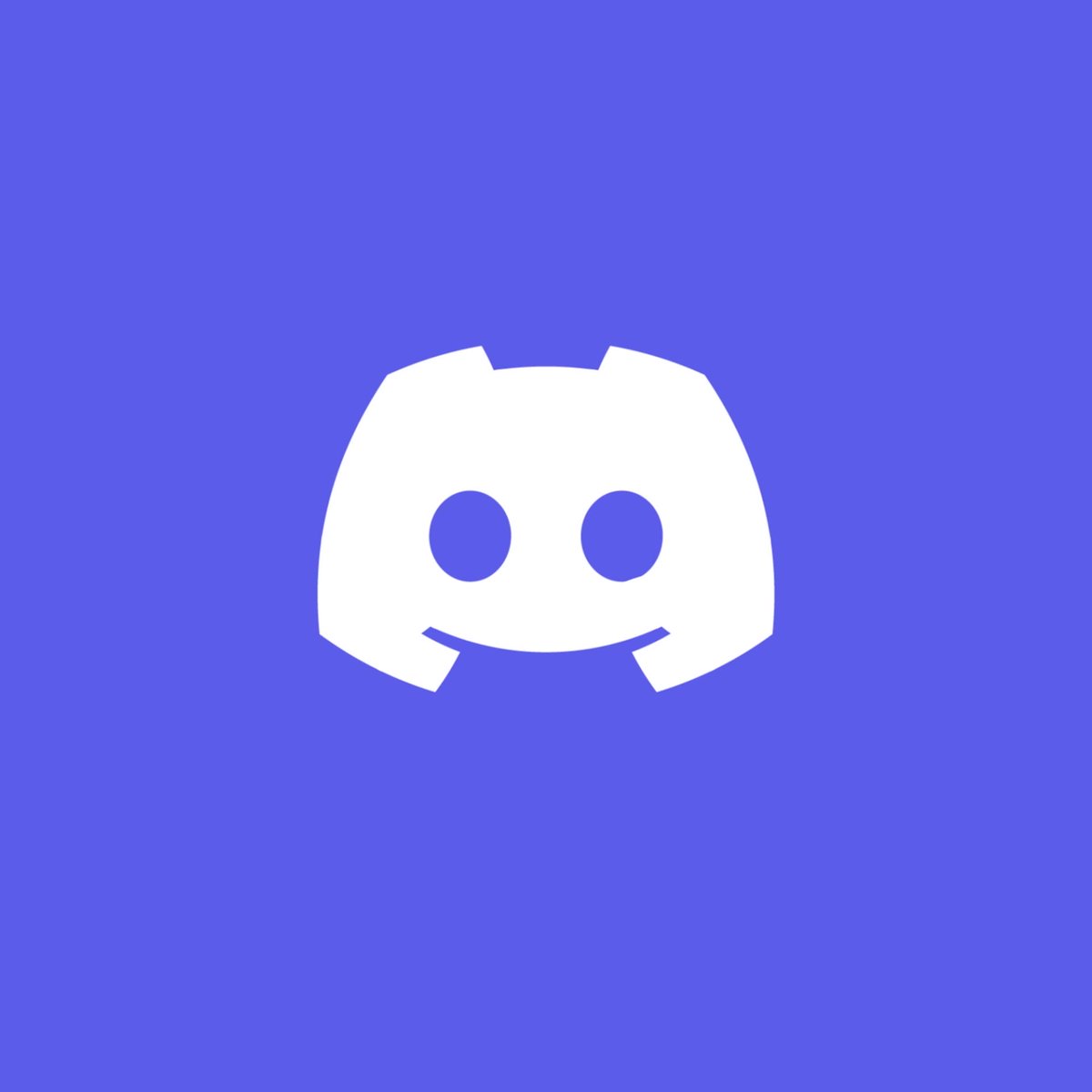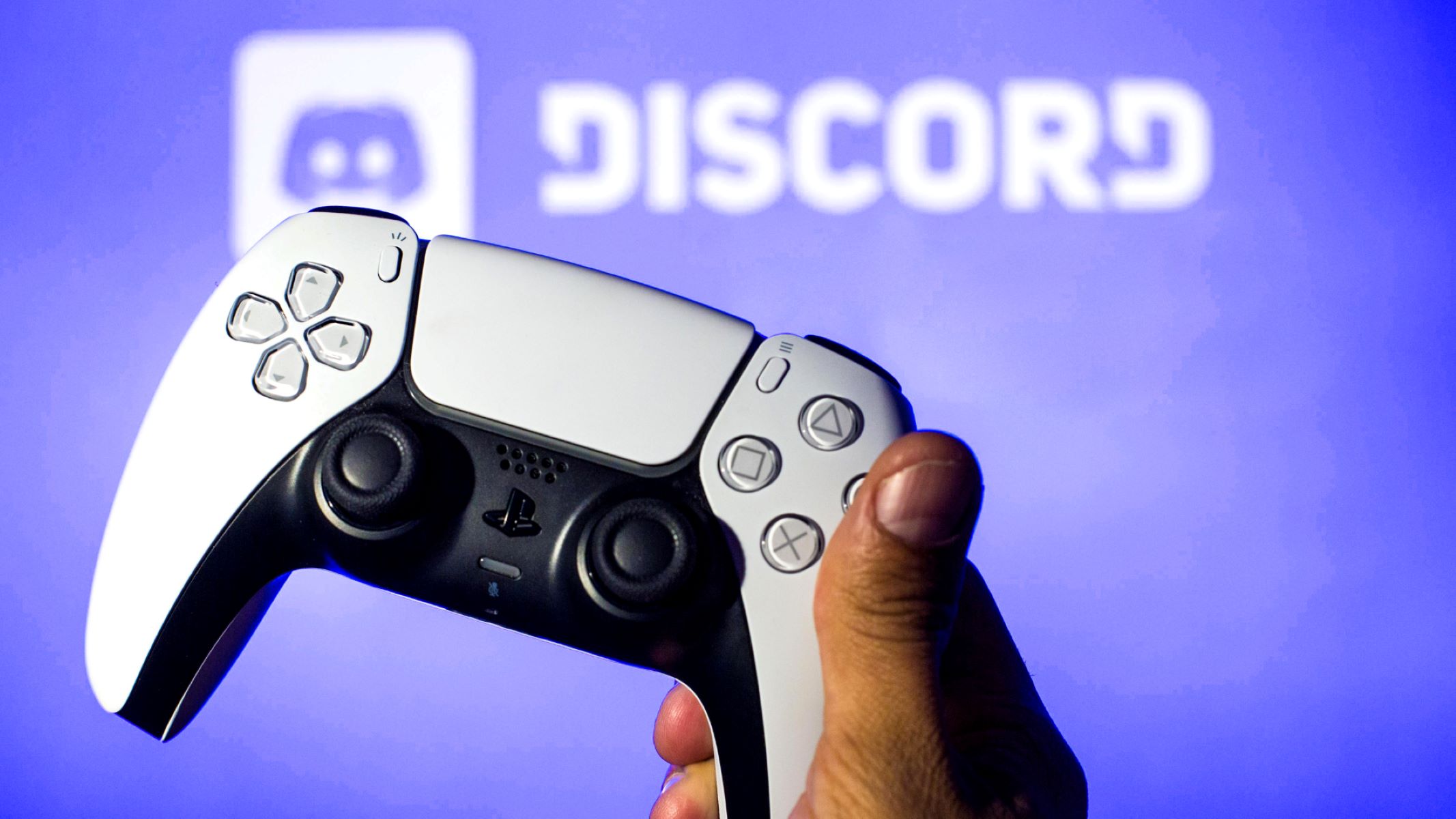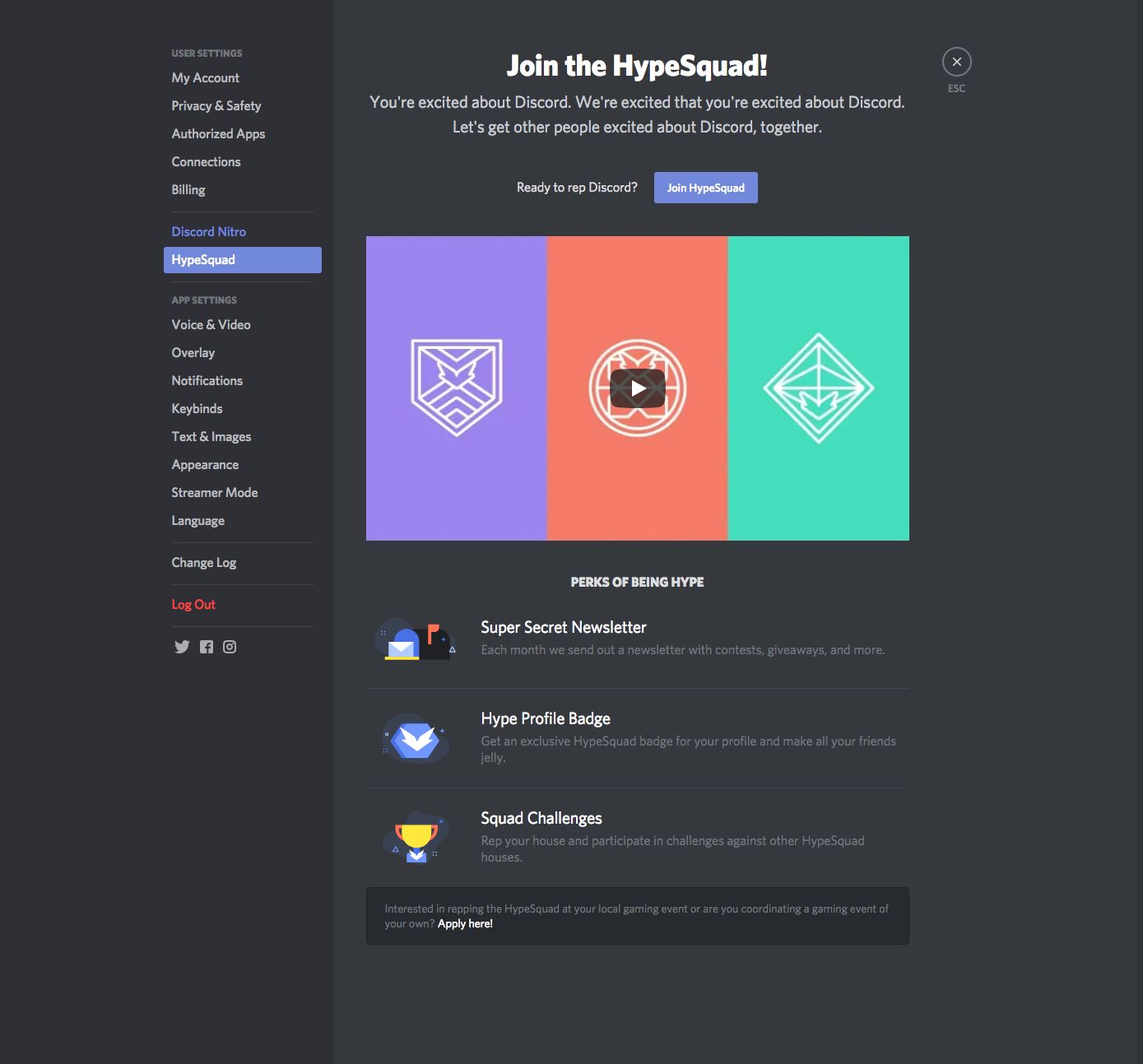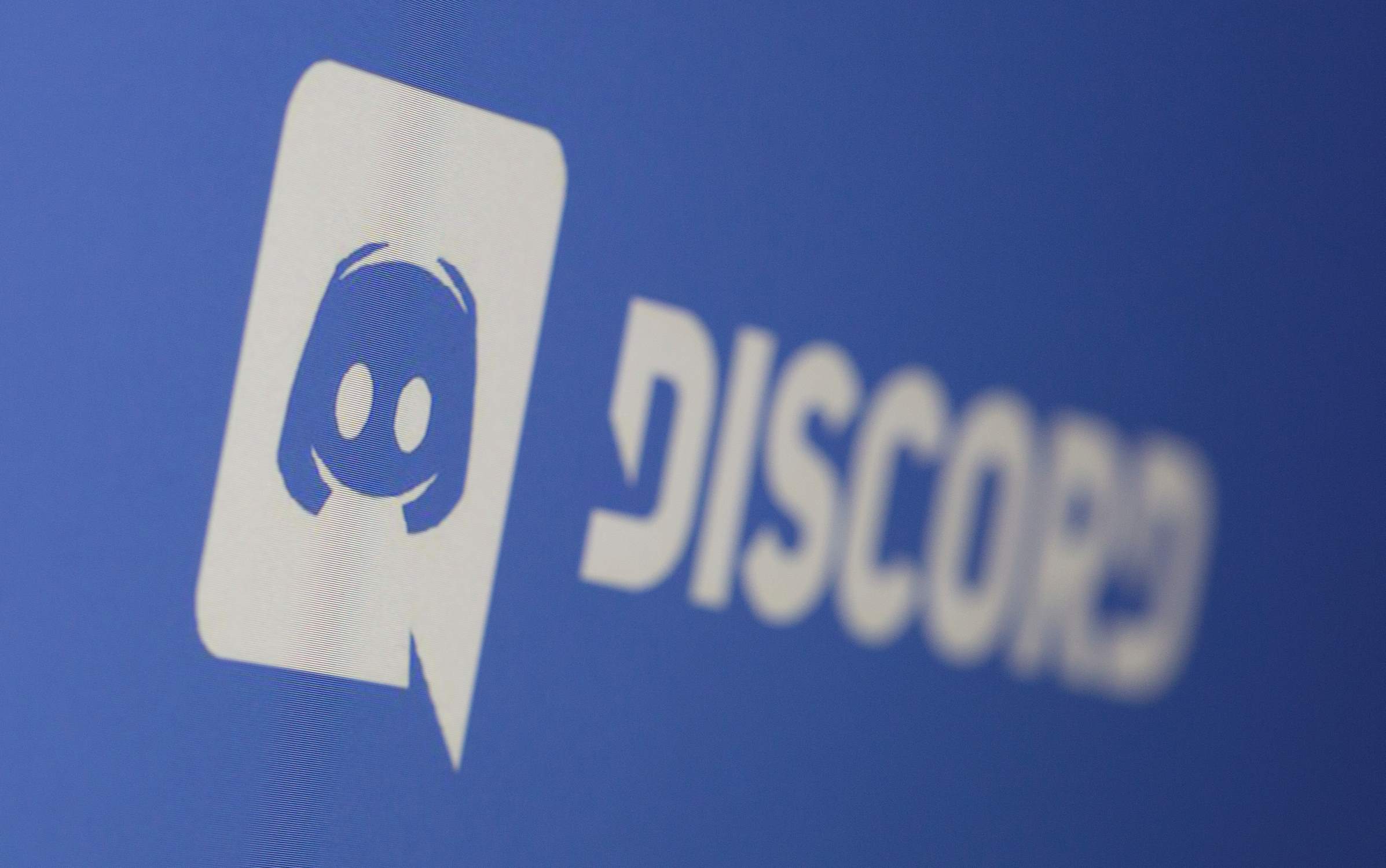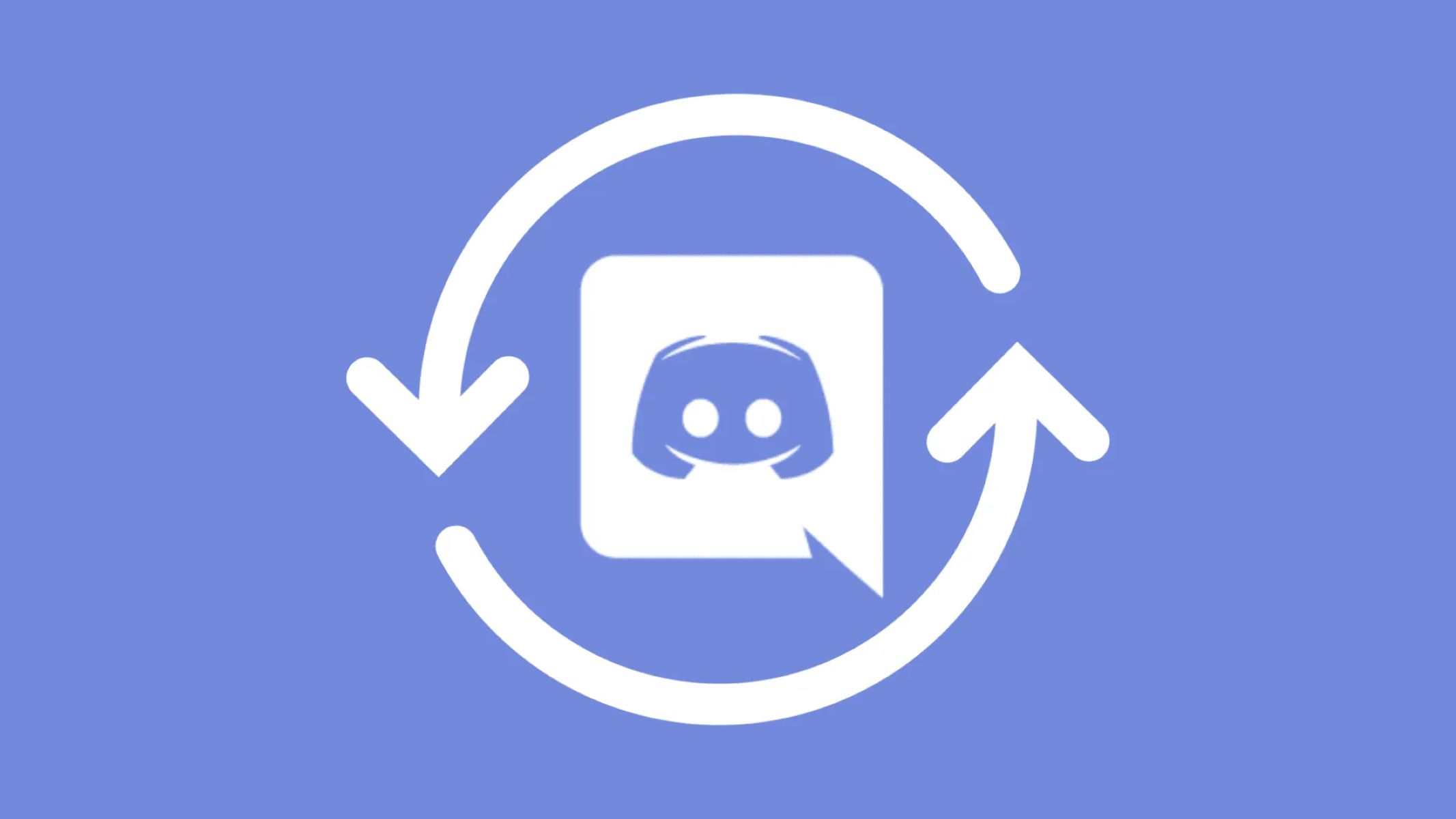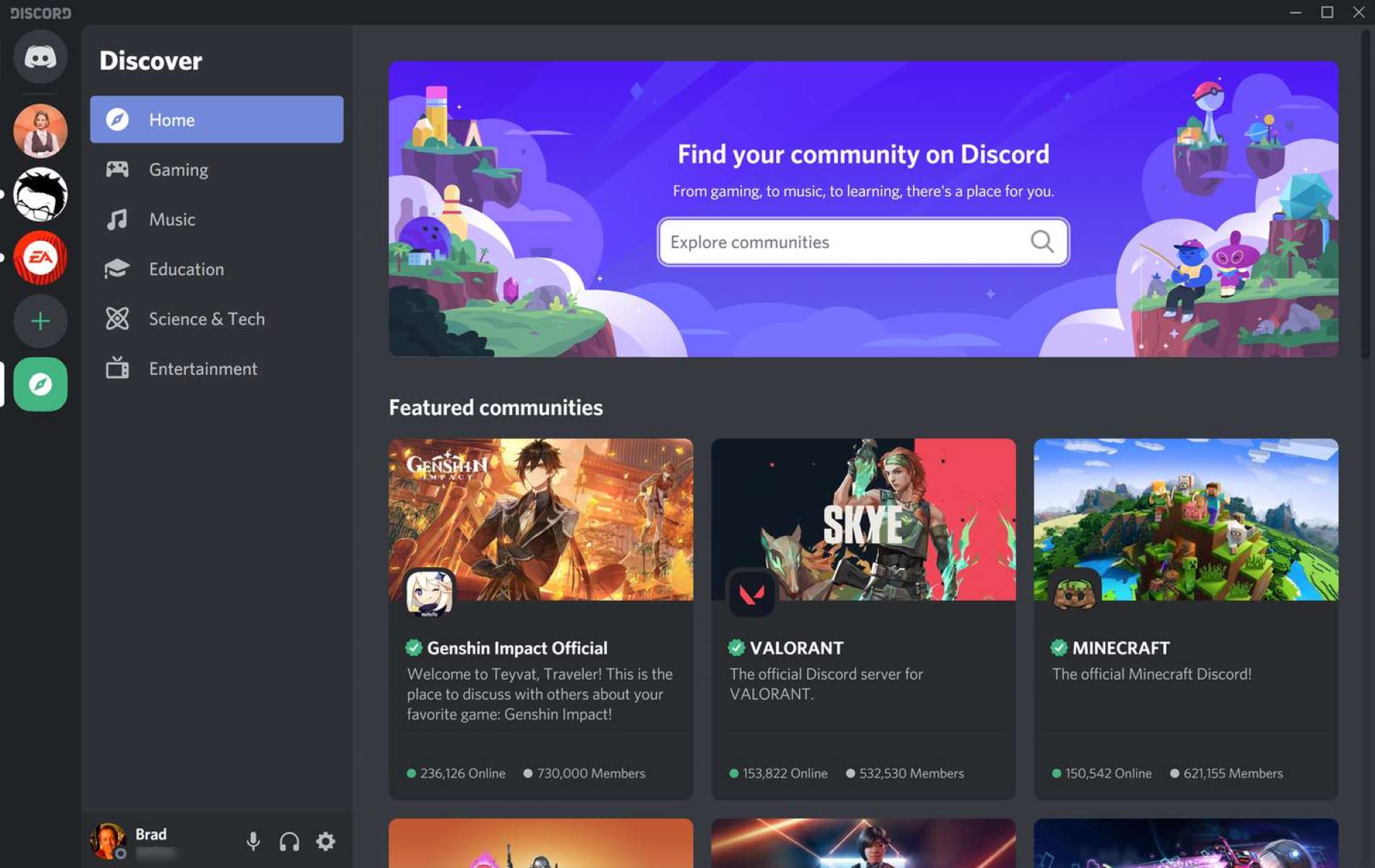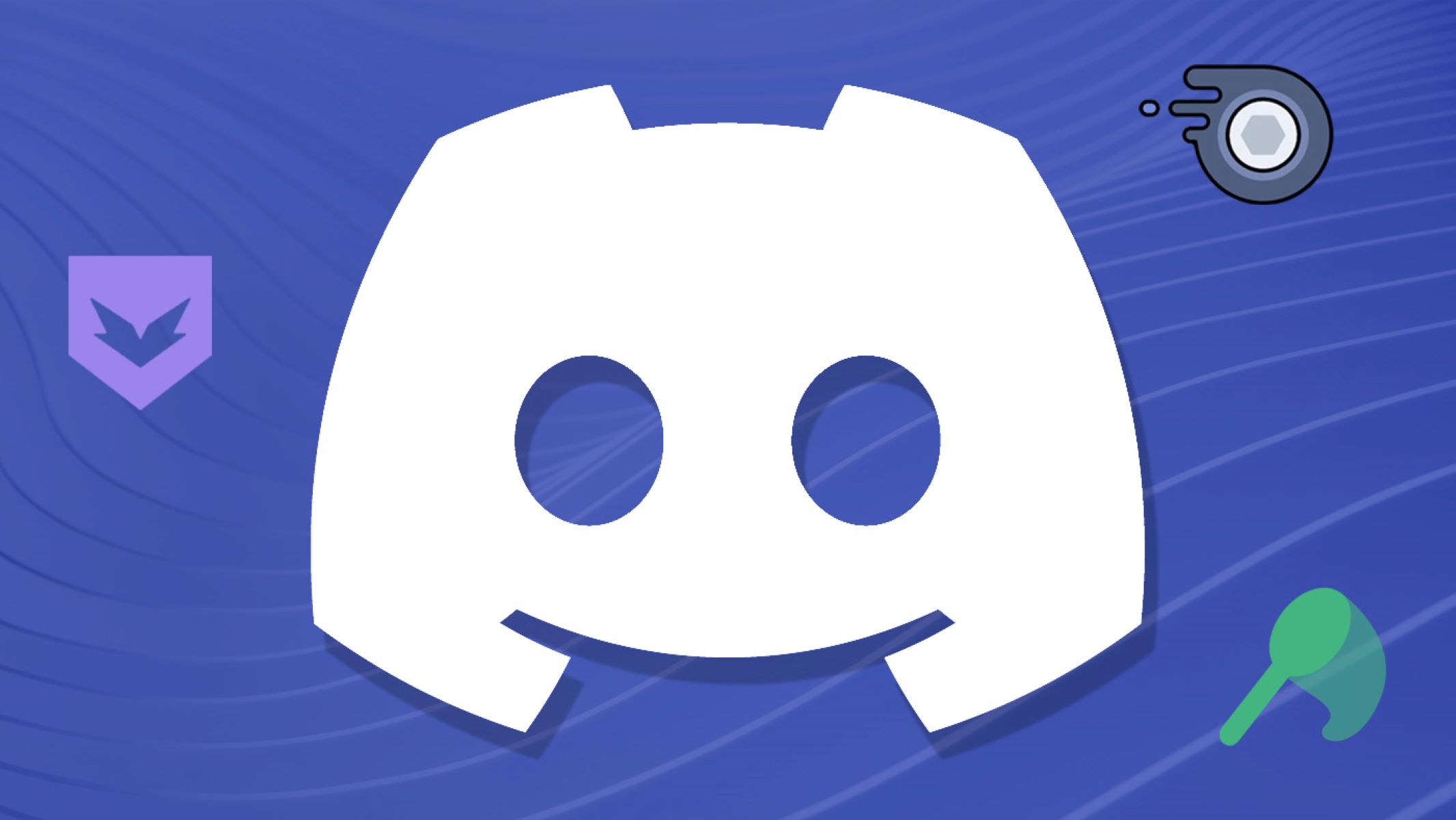Introduction
Welcome to the digital age, where communication and connectivity are key. In recent years, a new platform has taken the online community by storm, revolutionizing the way we connect and communicate with others. This platform is none other than Discord, a popular communication tool that has gained immense popularity in a relatively short period of time.
Discord was created with the vision of providing a seamless and user-friendly communication platform for gamers, but its appeal quickly extended to other communities as well. It offers a wide range of features that make it an attractive choice for individuals and groups looking for a convenient and efficient way to connect online.
So, how did Discord become the go-to platform for online communication? In this article, we will delve into the origins of Discord, its journey to popularity, and the impact it has had on the online community.
From its inception, Discord was designed to address the challenges gamers faced in finding a reliable and versatile communication tool. The creators of Discord recognized the need for a platform that would not only allow gamers to voice chat during gameplay but also provide a hub for text messaging, file sharing, and community management.
Launched in 2015, Discord quickly gained traction among gamers due to its user-friendly interface and low latency voice chat. Unlike its predecessors, Discord offered a seamless experience with clear audio quality, reliable connectivity, and minimal resource usage.
As more gamers started using the platform, Discord gained momentum and continued to evolve. Developers took the feedback and needs of the gaming community into account, rolling out frequent updates and implementing features requested by users. This continuous improvement and responsiveness to user feedback played a significant role in Discord’s rise to popularity.
While initially targeted at gamers, Discord’s appeal spread beyond the gaming community. Its versatility and ease of use attracted individuals and groups from various fields, including art, music, education, and more. Communities were created for sharing and discussing common interests, providing a space for like-minded individuals to connect and collaborate.
Furthermore, Discord’s emphasis on community and moderation features has enabled creators and organizers to manage their communities effectively. With features like role-based permissions and moderation tools, Discord offers a safe and welcoming environment for users to communicate and interact.
In the next sections, we will explore the timeline of Discord’s growth and discuss the impact it has had on online communication and gaming communities worldwide.
The Origins of Discord
Discord, the popular communication platform we know today, had humble beginnings. It was the brainchild of Jason Citron, a successful entrepreneur and the founder of OpenFeint, a social gaming platform that was later acquired by GREE. Citron had experienced the frustrations of finding a reliable and user-friendly communication tool while gaming, which sparked the idea for Discord.
Inspired by the desire to create a better communication platform for gamers, Citron and his team began developing Discord in 2014. Their goal was to address the shortcomings of existing communication tools and provide a seamless experience for gamers worldwide.
One of the primary challenges they aimed to solve was the poor audio quality and high latency issues that plagued existing voice chat applications. To overcome this, Discord was built using the Opus codec, which ensures high-quality audio transmission with minimum delay. By prioritizing audio quality and minimizing latency, Discord aimed to enhance the gaming experience and enable seamless communication during gameplay.
Another key consideration for the Discord team was the accessibility and ease of use of the platform. They wanted to create a platform that was not only feature-rich but also user-friendly, catering to both experienced gamers and those new to online gaming communities.
With these goals in mind, Discord was launched to the public in May 2015. It featured a clean and intuitive user interface, making it easy for users to navigate and interact with the platform. Discord not only offered voice chat capabilities but also introduced text messaging, file sharing, and community management tools, providing a comprehensive communication solution for gamers.
From its launch, Discord aimed to foster a sense of community, allowing gamers to connect and interact with like-minded individuals. It provided users with the ability to create and join servers, which acted as dedicated spaces for specific games, interests, or communities. This server-based architecture allowed gamers to form their own communities, invite friends, and engage in conversations and activities related to their shared interests.
Overall, the origins of Discord can be traced back to the vision of creating a reliable, user-friendly communication platform for gamers. The combination of high-quality voice chat, text messaging, and community management capabilities set Discord apart from other communication tools in the market. With its successful launch, Discord began its journey to becoming a household name among gamers and online communities.
The Launch of Discord
After months of development and refinement, Discord was officially launched to the public in May 2015. The launch marked the beginning of a new era in online communication, as Discord aimed to revolutionize the way gamers connect and interact.
At the core of Discord’s launch was its commitment to providing a reliable and seamless communication experience. Unlike its competitors, Discord prioritized audio quality and low latency voice chat, ensuring that gamers could communicate effectively without disruptions or delays. This focus on audio quality set Discord apart and appealed to gamers looking for a superior communication tool.
One of the key features that attracted users to Discord from the start was its clean and intuitive user interface. The design made it easy to navigate the platform and access its various features. The interface was clutter-free, allowing users to focus on their conversations and interactions without distractions.
Discord also introduced cross-platform compatibility right from the beginning, allowing users to connect and communicate regardless of the device they were using. Whether on a desktop computer, laptop, or mobile device, gamers could easily access their Discord servers and engage in real-time conversations.
To facilitate the growth of communities and foster collaboration, Discord implemented server-based architecture. This allowed users to create dedicated servers for specific games, interests, or communities. With servers, gamers could invite friends, form communities, and engage in discussions or activities related to their shared interests.
Discord’s launch was met with an overwhelmingly positive response from the gaming community. Gamers quickly recognized the value of the platform and its ability to enhance their gaming experience through seamless communication. Word-of-mouth spread rapidly, and Discord’s user base began to grow exponentially.
One factor that contributed to Discord’s early success was its proactive approach to community engagement. The Discord team actively sought and listened to user feedback, promptly addressing issues and implementing new features based on user suggestions. This level of responsiveness and interaction with the community helped Discord build a loyal and dedicated user base.
Furthermore, Discord incorporated a freemium model, allowing users to access most features for free while offering a subscription-based Nitro plan for additional perks. This approach made Discord accessible to a wide range of users and contributed to its rapid adoption.
Overall, the launch of Discord brought a breath of fresh air to the gaming community’s communication landscape. With its focus on audio quality, intuitive interface, cross-platform compatibility, and community-centric approach, Discord quickly established itself as a go-to communication platform for gamers worldwide.
Gaming Community Adoption
When Discord was initially launched, its target audience was the gaming community. The platform was designed to meet the unique communication needs of gamers and offer a seamless experience during gameplay. Unsurprisingly, Discord quickly gained traction and became the communication platform of choice for gamers worldwide.
One of the key factors that contributed to Discord’s adoption within the gaming community was its superior voice chat quality. Gamers who had previously struggled with unclear or laggy voice chat experiences found solace in Discord’s high-quality audio transmission. The Opus codec used by Discord ensured crystal clear voice communication, allowing gamers to strategize and coordinate effectively during intense gameplay moments.
Additionally, Discord addressed another significant pain point for gamers: server instability. Many existing voice chat applications were known for their frequent server crashes and disconnections, causing frustration and disruption during gaming sessions. Discord, on the other hand, boasted reliable and stable servers, minimizing the chances of interruptions and maintaining a consistent connection for gamers.
The user-friendly interface of Discord also played a crucial role in its adoption by the gaming community. Gamers appreciated the intuitiveness of the platform, allowing them to set up and manage servers effortlessly. The ability to create dedicated servers for specific games or communities attracted gamers who wanted to connect and socialize with like-minded individuals.
The versatility of Discord further enhanced its appeal to the gaming community. Apart from voice chat, Discord offered features such as text messaging, file sharing, and voice/video calls, providing a comprehensive communication solution for gamers. This meant that gamers could use a single platform for all their communication needs, eliminating the need to juggle multiple applications.
Word quickly spread about Discord among the gaming community, with gamers sharing their positive experiences and recommending the platform to their friends and online acquaintances. Gaming influencers and content creators also played a significant role in driving adoption. They showcased the benefits of using Discord for community building, collaboration, and engaging with their audience, further establishing Discord as the go-to platform for gamers.
The success of Discord within the gaming community led to a snowball effect. As more gamers embraced the platform, the community grew larger and more diverse. Gamers from different backgrounds, regions, and gaming genres flocked to Discord, creating a vibrant and dynamic ecosystem of communities.
Discord’s popularity within the gaming community also attracted the attention of game developers and publishers. They recognized the power of Discord as a communication and community-building tool, and many started incorporating Discord integration within their games. This integration allowed gamers to join game-specific servers directly from within the game interface, making it even easier for players to connect and communicate.
Overall, the gaming community’s adoption of Discord can be attributed to its superior voice chat quality, reliable servers, user-friendly interface, and versatility. With its ability to enhance communication and foster a sense of community, Discord became an essential tool for gamers, revolutionizing the way they connect, collaborate, and socialize within the gaming world.
Growth and Expansion
Following its initial success within the gaming community, Discord started to experience rapid growth and expansion. The platform’s popularity skyrocketed, reaching beyond the gaming world and attracting users from various backgrounds and interests.
One of the key drivers of Discord’s growth was its ability to cater to a wide range of communities. As the platform gained traction, individuals and groups from different industries and hobbies began to flock to Discord to connect and collaborate. Artists, musicians, educators, and many others found value in using Discord as a communication tool to share their work, exchange ideas, and build a dedicated community around their passions.
Discord’s adaptability and versatility played a significant role in this expansion. While the platform was born from the gaming community, its features and functionalities were easily applicable to other fields. Discord’s text channels, voice chat, and server organization provided users with a flexible and customizable platform to suit their specific needs.
Recognizing the potential of Discord as a communication and community management tool, businesses and organizations also started to embrace the platform. From small independent teams to large enterprises, Discord offered a low-cost and effective solution for internal communication, project collaboration, and remote team management. Features such as role-based permissions and integrations with other tools made Discord a versatile platform for professional organizations.
Discord’s growing popularity attracted the attention of investors, leading to significant financial backing. The company secured funding, enabling them to continue expanding and improving the platform. This financial support allowed Discord to invest in infrastructure, development, and user experience enhancements, further fueling its growth.
Moreover, Discord actively sought partnerships and collaborations to expand its reach. One such significant partnership was with the gaming-focused communication platform, Curse Voice. With this partnership, Discord gained access to new users and integrated features that enhanced the gaming experience on both platforms.
Discord’s expansion was not limited to user growth; it also ventured into new markets and platforms. The launch of Discord’s mobile app opened doors to a wider audience of users who preferred to connect on the go. The mobile app brought all the essential functionalities of Discord to smartphones and tablets, making it accessible to users across various devices and operating systems.
In addition to its standalone app, Discord also introduced integration with other platforms and services. Integration with popular gaming platforms, such as Steam and Twitch, allowed users to easily connect their accounts and enhance their gaming experience. The ability to see what games friends were playing and join their game sessions directly from Discord further strengthened the platform’s appeal.
As Discord continued to evolve and expand, it gained recognition and accolades within the tech industry. It won multiple awards for its user experience, innovation, and impact on the way people communicate and connect online. The growth and expansion of Discord were propelled by its commitment to providing a high-quality, versatile, and user-friendly communication platform.
Overall, the growth and expansion of Discord went far beyond its roots in the gaming community. As it attracted users from diverse backgrounds, industries, and interests, Discord solidified its position as a leading platform for online communication and community building.
Competitors and Challenges
As Discord experienced rapid growth and expanded its user base, it inevitably faced competition from other communication platforms. While Discord carved out a niche for itself in the gaming community, it had to navigate the challenges posed by both existing and emerging competitors.
One of the primary competitors faced by Discord was the established voice chat application, TeamSpeak. TeamSpeak had long been a popular choice among gamers for its high-quality voice chat capabilities. However, Discord’s user-friendly interface, low latency, and additional features set it apart and attracted users seeking a more modern and versatile communication platform.
Another notable competitor was Skype, a widely used communication tool across various industries. Skype had an established user base and offered a range of features, including voice, video, and text communication. However, Discord’s focus on the gaming community and its tailored features specifically designed for gamers gave it an edge in that niche.
Slack, a collaboration platform often used for professional communication, also emerged as a competitor for Discord. Slack offered robust team communication and project management features, appealing to businesses and organizations. Although it targeted a different audience, Slack’s user-friendly interface and versatility posed a challenge to Discord’s expansion beyond the gaming community.
Discord also faced competition from emerging platforms that aimed to capitalize on the demand for online communication tools. These competitors included platforms like Mumble, Ventrilo, and Curse Voice. While they were popular among the gaming community, Discord’s continuous improvement and ability to adapt to user needs helped it stay ahead of the competition.
One of the challenges Discord faced was maintaining a balance between gaming-focused features and appealing to a broader audience. As the platform expanded beyond gaming, it had to ensure that its features and user experience catered to users from different backgrounds and interests. Discord successfully managed this challenge by offering customizable server features, extensive moderation tools, and integrations with other platforms.
Another challenge was tackling the issue of toxicity and harassment within communities. Like any online platform, Discord had to address the problem of abusive behavior and toxic interactions. It implemented various moderation features and tools to empower server owners and moderators to create safe and inclusive environments. Discord also had to develop effective methods for tackling spam, scams, and other malicious activities to maintain the integrity of the platform.
The rise of competitors and the challenges faced by Discord spurred the company to continually innovate and improve its platform. Discord remained committed to listening to user feedback, implementing new features, and addressing community concerns. This dedication helped Discord stay ahead in the highly competitive market of online communication platforms.
Despite the challenges and competition, Discord’s unique positioning as a communication platform designed by gamers for gamers, combined with its continuous improvement and versatility, allowed it to maintain its dominance in the gaming community and expand into other sectors.
Impact on Communication and Gaming
The emergence of Discord has had a profound impact on the way people communicate and connect within the gaming community and beyond. Through its innovative features and user-friendly interface, Discord has revolutionized communication in multiple ways.
First and foremost, Discord has transformed voice communication during gaming. With its high-quality audio transmission and low latency, gamers can now enjoy clear and uninterrupted voice chat, enhancing their ability to strategize and collaborate during gameplay. Discord’s reliability and stability have eliminated the frustrations of frequent server crashes and disconnections experienced with other communication tools, providing a seamless communication experience for gamers.
Discord’s text messaging feature has also facilitated convenient and organized communication. Gamers can now effortlessly chat with their friends, share information, and coordinate plans through text channels. Text channels have become virtual hangouts for communities, offering a space for discussions, updates, and announcements related to specific games or interests.
Furthermore, Discord’s community-based architecture has fostered the formation of close-knit gaming communities. Gamers can create their own servers, invite friends, and join larger community servers, enabling them to connect with like-minded individuals from all around the world. Discord has become a hub for socializing, organizing events, and building friendships within the gaming community.
Discord’s impact extends beyond gaming, as it has found use in various industries and communities. Artists, musicians, and content creators have turned to Discord to connect with their audience and collaborate with fellow creators. Educators and students have used Discord as a platform for remote learning, facilitating communication and collaboration outside traditional classroom settings.
Additionally, Discord has influenced the streaming and esports industry. Many streamers use Discord to interact with their viewers, creating entire communities around their channels. Esports teams and organizations utilize Discord to communicate with players, coaches, and support staff, facilitating coordination and strategy development.
Moreover, Discord has had a significant impact on the gaming industry itself. Game developers and publishers recognize the value of fostering community engagement and communication. Integration with Discord enables developers to build stronger connections with their player base, allowing gamers to join game-specific servers directly from within the game interface and receive important updates and announcements.
Discord’s impact on gaming stretches beyond communication. It has become a platform for collaboration and creativity. With its file sharing capabilities, gamers and content creators can easily exchange and showcase their work. Discord acts as a space where developers can gather feedback from players, enabling iterative design and improvement.
Overall, Discord has transformed the way gamers and communities communicate, connecting them in unprecedented ways. It has become an indispensable tool for gamers, artists, educators, and professionals alike. As Discord continues to grow and evolve, it will likely continue to shape the future of communication in the gaming community and beyond.
Discord Today
Fast forward to the present day, and Discord remains a dominant force in the world of online communication. With millions of active users and a thriving community, Discord continues to evolve and innovate to meet the needs of its diverse user base.
Discord has expanded its reach beyond its initial gaming focus. While gamers continue to make up a significant portion of its user base, Discord has become a popular platform for various communities and interests. Artists, writers, musicians, educators, professionals, and more have found value in Discord’s versatile features and user-friendly interface.
Discord’s commitment to improving user experience is evident through its frequent updates and feature enhancements. The platform has introduced new features such as Stage Channels for live events and discussions, Threaded Conversations for organized discussions within a channel, and additional moderation tools to keep communities safe and inclusive.
Discord has also made efforts to strengthen its mobile offerings, recognizing the growing importance of mobile connectivity. The Discord mobile app continues to receive updates, ensuring that users can seamlessly connect and communicate on the go, whether they are on their smartphones or tablets.
Integration with various platforms and services remains a key aspect of Discord’s growth. Integration with gaming platforms such as Steam and Twitch allows users to easily connect their accounts and enhance their gaming experiences. Partnership with content creation platforms like YouTube and Patreon further expands Discord’s reach and gives creators the tools to engage with their audience.
Discord’s commitment to creating a safe and inclusive environment is reflected in its approach to moderation and community management. The implementation of features such as user-defined profanity filters, the ability to report and block users, and server-level moderation customization options helps foster a positive community experience.
Furthermore, Discord has introduced the Discord Nitro subscription service. Nitro offers additional perks such as enhanced video quality, custom Discord tags, animated emojis, and increased file upload limit. Nitro allows Discord to generate revenue to support the continued development and improvement of the platform while providing additional value to subscribers.
Discord’s impact on the streaming and content creation industry remains significant. Streamers rely on Discord to interact with their communities, engage with viewers, and coordinate collaborations. Discord’s Rich Presence integration has enhanced the streaming experience, allowing viewers to see what games their favorite streamers are playing and join them directly.
In summary, Discord has become a formidable player in the world of online communication. Its versatility, user-friendly interface, and commitment to user experience have positioned it as a go-to platform for communities, professionals, and gamers alike. Discord’s innovative features and continuous improvements ensure that it remains at the forefront of online communication and community building.
Conclusion
Discord has revolutionized online communication, providing a versatile, user-friendly platform that has resonated with gamers and communities around the world. From its inception as a communication tool designed specifically for gamers, Discord has surpassed expectations and expanded into various industries and interests.
With its superior voice chat quality, low latency, and reliable servers, Discord has transformed communication during gaming, enhancing collaboration and coordination among players. Beyond gaming, Discord has become a hub for communities to connect, collaborate, and share their passions. Artists, musicians, educators, professionals, and individuals from diverse backgrounds have found value in Discord’s features and its ability to foster a sense of camaraderie.
Discord’s impact extends beyond communication. It has influenced the gaming industry by facilitating community engagement, enabling developers to connect with their player base directly. Collaboration and creativity are also fostered on Discord, with file sharing and feedback mechanisms allowing developers and content creators to thrive.
Discord’s success can be attributed to its continuous improvement, adaptability, and commitment to user experience. Frequent updates and new features ensure that Discord remains relevant and responsive to the evolving needs of its user base. Integration with other platforms and services further enhances the Discord experience, creating seamless connections for users across different ecosystems.
As Discord continues to evolve, it faces challenges from competitors and the need to maintain a balance between its gaming roots and expansion into other industries. However, Discord’s strong community engagement, proactive moderation features, and commitment to inclusivity give it an edge in the ever-growing market of online communication platforms.
In conclusion, Discord has cemented its position as a leading platform for online communication, connecting communities, and fostering collaboration. Its impact on communication and gaming has been significant, transforming the way people connect, game, and interact online. With its commitment to user experience, continuous innovation, and versatility, Discord is poised to shape the future of online communication and community building.







